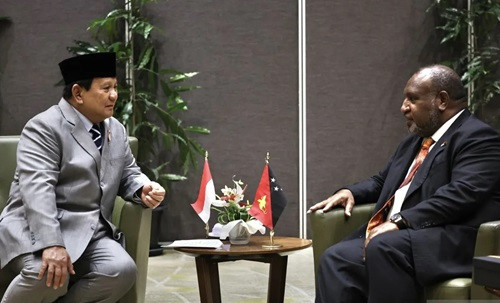RI braces for high inflation era
After years of enjoying a period of high growth and low inflation, Indonesia is entering a high inflation era following the governmentâs recent move to raise prices of subsidized fuel
Change text size
Gift Premium Articles
to Anyone

After years of enjoying a period of high growth and low inflation, Indonesia is entering a high inflation era following the government's recent move to raise prices of subsidized fuel.
The central bank has forecast annual inflation in July to breach 8 percent, the highest in four years, a situation that may weigh on economic growth and drive up the government's bond yields and debt payments.
'Bank Indonesia conducts a price level survey in 20 cities every week to monitor inflation; we see that inflation in the third week [this month] may reach 8 percent,' Governor Agus Martowardojo said Thursday after his meeting with top officials from Trade Ministry, Agriculture Ministry, Finance Ministry and Industry Ministry at BI's headquarters in Jakarta.
The last time that Indonesia posted such high level of inflation was in February 2009, when it hit 8.6 percent, according to BI data. The government targeted annual inflation to reach 7.2 percent in the revised 2013 State Budget, while the central bank forecast inflation to stay below 7.8 percent this year.
Agus estimated that the monthly inflation would rise by 2.77 percent in July, bringing the year on year inflation to more than 8 percent due to the surge in subsidized fuel prices last month.
The consumer price index rose 5.9 percent in June from a year earlier, the fastest pace since May 2011.
Inflation overshot when the government hiked fuel prices in 2005 and 2008, but analysts said that the situation this time might be different, given additional imported inflation pressure from the weak rupiah and high consumption during the Ramadhan fasting month.
The fuel price hike may drive up inflation to as high as 9 percent between July and September this year, the World Bank said in its recent report, titled 'Adjusting to Pressures'.
'The impact is likely to be more significant this time compared to 2008 and 2005,' Gundy Cahyadi, an economist with OCBC Bank in Singapore, said on Thursday.
'The fact that the rupiah has been weak and that last year's inflation was excessively low; we are likely to see annual inflation staying around the 8 percent level for a little longer, relative to the past two episodes,' he explained
In addition, high inflation would theoretically erode returns in the bond market, driving up yields and triggering capital outflow, which ultimately would exert further pressure on the rupiah. 'We must monitor inflation because it would affect our exchange rate,' Agus said.
Having seen steep depreciation over the last few days, the rupiah was relatively stable on Thursday, weakening by only 1 basis point to hit 10,263 per US dollar, according to the Jakarta Interbank Spot Dollar Rate (JISDOR).
The rupiah is now in the process of 'converging until it meets its new equilibrium rate', according to the BI governor.
The rupiah rate of around 10,200 per dollar has lured foreign investors to enter the bond market, Finance Minister Chatib Basri told reporters, citing the recent downward trend in bond yields, which stood at around 7.8 percent at the moment, from 8.3 percent only days ago.
The minister explained that the high inflation in July ' which stemmed from the government's moves in hiking fuel prices, coupled with higher consumption during Ramadhan ' would be temporary.
Price levels would return to 'relatively small' figures in September, before the country experienced deflation in the following months, Chatib said. 'With lower inflation expectations ahead, the bonds yields will decline,' he reassured.
The Finance Ministry's debt management office raked Rp 5.27 trillion from a sukuk bond auction this week, more than three times its indicative target of Rp 1.5 trillion. The government tolerated high yields, with weighted average yields from the 30 year Islamic debt papers offered during the auction topping 8.55 percent.
In response to the high inflation, Agus ' who has jacked up both BI rate and overnight deposit facility rate (Fasbi) by 75 basis points since he took office in May ' hinted over implementing more monetary tightening in the future.









